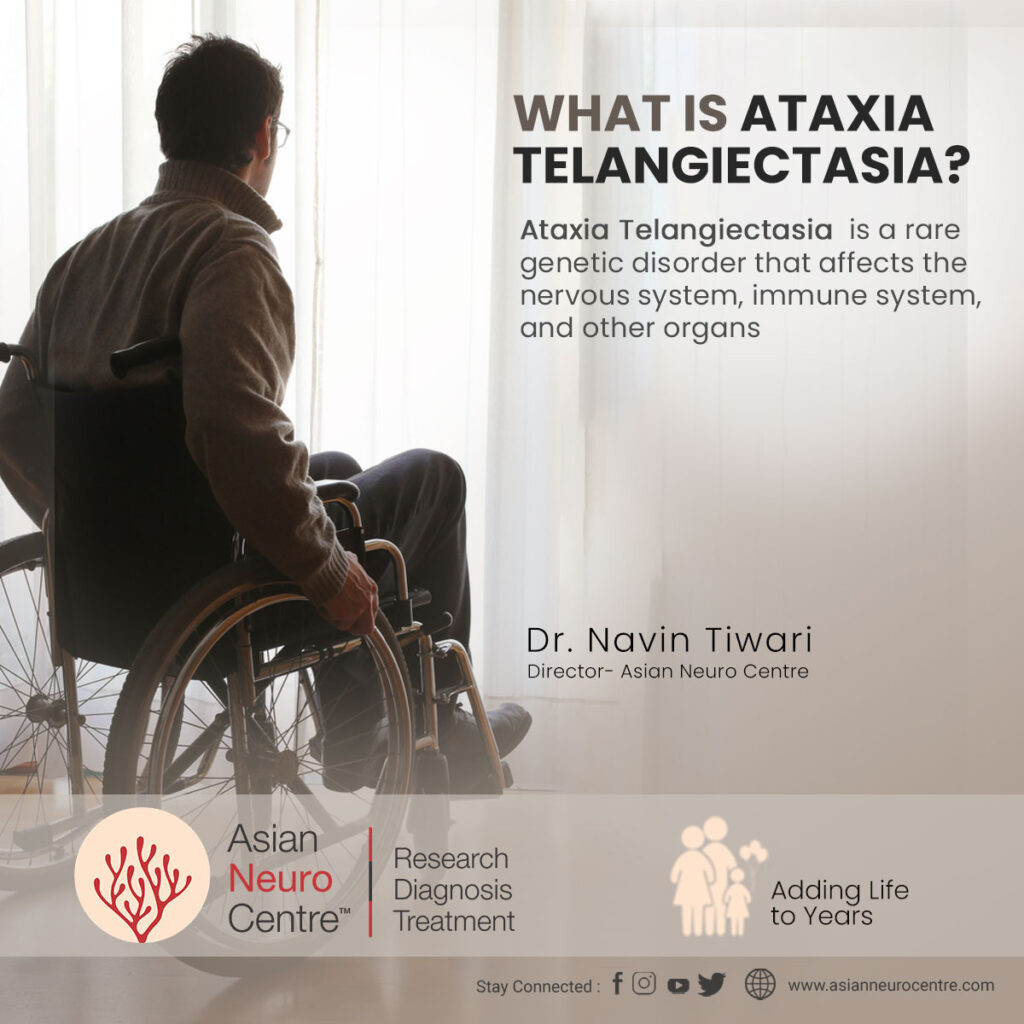- Have any questions?
- 911 12345 29
- info@asianneurocentre.com
What is Ataxia Telangiectasia?, Symptoms, Causes, Treatment & More
What is Ataxia?, Symptoms, Causes, Treatment & More
November 24, 2023What is Friedreich’s Ataxia?, Conditions & More
December 4, 2023What is Ataxia Telangiectasia?, Symptoms, Causes, Treatment & More
- +ataxia telangiectasia
- afp ataxia telangiectasia
- are there cases of ataxia telangiectasia that go unnoticed
- at ataxia telangiectasia
- ataxia telangiectasia
- ataxia telangiectasia (at)
- ataxia telangiectasia adults
- ataxia telangiectasia afp
- ataxia telangiectasia age of onset
- ataxia telangiectasia and rad3-related
- ataxia telangiectasia atm
- ataxia telangiectasia atm gene
- ataxia telangiectasia autosomal recessive
- ataxia telangiectasia b cell t cell
- ataxia telangiectasia breast cancer
- ataxia telangiectasia cancer
- ataxia telangiectasia cause
- ataxia telangiectasia causes
- ataxia telangiectasia cell signaling
- ataxia telangiectasia cell signaling pathway
- ataxia telangiectasia chromosome
- ataxia telangiectasia clinic
- ataxia telangiectasia defect in t cells
- ataxia telangiectasia definition
- ataxia telangiectasia diagnosis
- ataxia telangiectasia disease
- ataxia telangiectasia disorder
- ataxia telangiectasia dna repair defect
- ataxia telangiectasia gene
- ataxia telangiectasia gene radiation
- ataxia telangiectasia gene reviews
- ataxia telangiectasia genereviews
- ataxia telangiectasia genesis
- ataxia telangiectasia genetics
- ataxia telangiectasia having sex
- ataxia telangiectasia hereditary
- ataxia telangiectasia iga deficiency
- ataxia telangiectasia iga deficiency blood transfusion anaphylaxis
- ataxia telangiectasia immunodeficiency
- ataxia telangiectasia in adults
- ataxia telangiectasia inheritance
- ataxia telangiectasia ir
- ataxia telangiectasia life expectancy
- ataxia telangiectasia magyarul
- ataxia telangiectasia market
- ataxia telangiectasia mechanism
- ataxia telangiectasia med bulelt
- ataxia telangiectasia medbullets
- Ataxia telangiectasia mutated
- ataxia telangiectasia mutated (atm)
- ataxia telangiectasia mutated (atm) gene
- ataxia telangiectasia mutated a-t
- ataxia telangiectasia mutated gene
- ataxia telangiectasia mutated protein
- ataxia telangiectasia mutation
- ataxia telangiectasia pathophysiology
- ataxia telangiectasia pedigree
- ataxia telangiectasia poem
- ataxia telangiectasia ppt
- ataxia telangiectasia prevalence
- ataxia telangiectasia prognosis
- ataxia telangiectasia pronunciation
- ataxia telangiectasia radiation sensitivity
- ataxia telangiectasia radiology
- ataxia telangiectasia specialts
- ataxia telangiectasia speech therapy
- ataxia telangiectasia symptom cause
- ataxia telangiectasia symptoms
- ataxia telangiectasia symptoms children
- ataxia telangiectasia syndrome
- ataxia telangiectasia treatment
- ataxia telangiectasia usmle
- ataxia telangiectasia vs friedreich's ataxia
- ataxia telangiectasia; dna repair defect
- ataxia telangiectasia.
- ataxia-telangiectasia chromosome
- ataxia-telangiectasia diagnosis
- ataxia-telangiectasia inheritance
- ataxia-telangiectasia symptoms
- atm (ataxia telangiectasia mutated)
- atm ataxia telangiectasia
- atm ataxia telangiectasia mutated
- cause and core symptoms of ataxia telangiectasia
- causes of ataxia telangiectasia
- chromosome affected by ataxia telangiectasia
- define ataxia telangiectasia
- friedreich ataxia vs ataxia telangiectasia
- genereviews ataxia telangiectasia
- hereditary ataxia telangiectasia
- how is ataxia telangiectasia inherited
- is ataxia telangiectasia fatal
- late onset ataxia telangiectasia
- lethbridge ataxia telangiectasia alex cure
- life expectancy ataxia telangiectasia
- oldest person with ataxia telangiectasia
- radiology ataxia telangiectasia
- rh negative blood and ataxia telangiectasia
- Symptoms of Ataxia Telangiectasia
- treatment for ataxia telangiectasia
- What are the 3 types of ataxia?
- what causes ataxia telangiectasia
- what chromosome is ataxia telangiectasia found on
- what icd-10-cm code is reported for ataxia telangiectasia?
- what is ataxia telangiectasia
- what is ataxia telangiectasia symptoms
- What is the cause of ataxia-telangiectasia?
- What is the cause of ataxia?
- What is the cause of Louis-Bar syndrome?
What is Ataxia Telangiectasia?
Ataxia Telangiectasia (A-T) is a rare genetic disorder that mainly affects children. It impacts the nervous system, causing problems with coordination and balance, known as ataxia.
Diagnosing A-T involves observing these symptoms, conducting genetic tests, and assessing immune system function. Early detection is crucial for managing symptoms and providing appropriate care.
Some therapies can help enhance the quality of life for individuals with Ataxia Telangiectasia.

Symptoms of Ataxia Telangiectasia
- Individuals with A-T often experience difficulty with balance and coordination, leading to irregular movements.
- Children may show delayed development of motor skills, such as walking.
- Telangiectasia, tiny red spider-like veins, may appear on the skin or whites of the eyes.
- Speech and eye movements can also be affected.
- Other symptoms may include slowed growth, sensitivity to radiation, and an increased risk of certain cancers.
Causes of Ataxia Telangiectasia
- Ataxia telangiectasia (AT) is a rare genetic disorder primarily caused by mutations in the ATM (ataxia telangiectasia mutated) gene.
- AT primarily affects the nervous system, causing progressive degeneration of the cerebellum and other brain regions.
- Visible blood vessel dilation (telangiectasia) occurs, particularly in the eyes and skin.
- AT patients experience immune system deficiencies, leading to increased susceptibility to infections.
Treatment of Ataxia Telangiectasia
Ataxia telangiectasia (A-T) is a rare genetic disorder that affects the nervous system, immune system, and other body systems. Treatments aim to improve the symptoms and make life better.
Physiotherapy and occupational therapy play crucial roles in maintaining mobility and independence. Speech therapy can help with communication difficulties. Since A-T affects the immune system, prompt treatment of infections is essential.
Regular check-ups with a healthcare team, including neurologists and immunologists, are crucial for monitoring the progression of the disease.
Medications may be prescribed to alleviate specific symptoms, such as tremors or muscle stiffness. Consulting a doctor is necessary as they can give the right treatment.
Dr. Navin Tiwari
Consulting Neurologist
